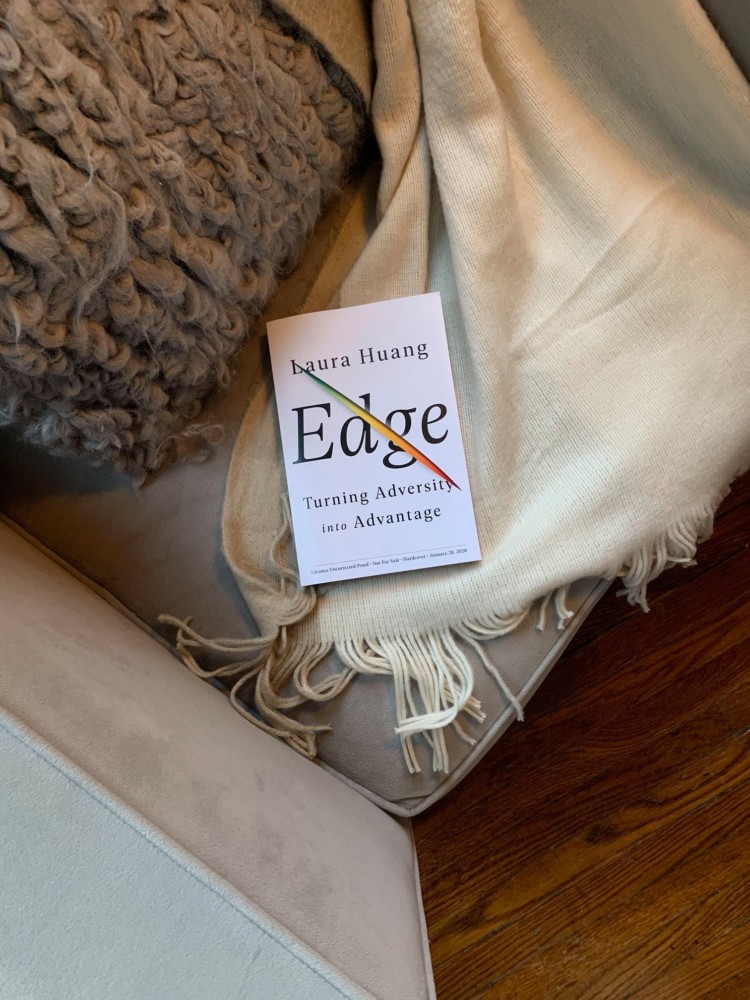By Neil Senturia
The San Diego Union-Tribune
WWR Article Summary (tl;dr) In her new book, “Edge, Turning Adversity into Advantage” Harvard professor Laura Huang argues that entrepreneurs need to find their “edge” — those unique qualities that set them apart. Then it is time to prove your value!
San Diego
“Life isn’t fair.” That quote has been attributed to several hundred thinkers, writers, philosophers, pundits, wags and washerwomen. OK, so then what?
For an interesting perspective, I turned to Harvard professor Laura Huang’s new book, “Edge, Turning Adversity into Advantage.” The common and accepted mantra for the millennial (and most of us) is that the secret to success is hard work. But we all know that hard work alone is not the ticket; there must be something more, and that is where Huang focuses her research.
We have all experienced the apparent unfairness when someone else gets the promotion, the dinner invitation, the ride on the corporate jet, even though, demonstrably you have done more and should have reaped the reward. We howl at the moon and ask with bitterness and outrage: How did this unconscionable act of misplaced approval happen?
Huang argues that entrepreneurs need to find their “edge” — those unique qualities that set us apart. We can identify and work to enhance them, but the real trick is to get someone else (in a position of power) to see them, “to open the door.” I will share some of her suggestions, but in my own reptilian brain, I have periodically resorted to getting a baseball bat and just banging on the door until it opens or the bat breaks. (I call this channeling my inner Ray Donovan, and I confess that I have gotten more than a few splinters from this model).
Now to the expert. Huang offers four steps to hone your edge. First, “identify the basic goods you have to offer that will enrich others.” Huang tells the story of Buc-ee’s gas station in Lake Worth, Texas. The entrepreneurs opened their first store with a clear understanding of what their customers needed most — “gas, cheap ice and clean restrooms.” It worked, and now they own more than 30 sprawling stores, one of which has 33 urinals in a single men’s room.
Next up on the Edge according to Huang is to “own your constraints but encourage others to see past them.” I am 5′ 6″ and will never play professional basketball. She points out that most of us never fit all the criteria for any job, but we need to shine in the places where we excel and not let other people define us by those shortcomings. Her research shows that men are more likely to apply for jobs, even when they don’t fit the criteria, while women are quicker to shy away from applying. (No surprise there, unfortunately.)
Her next Edge principle is “focus on ways to delight others.” The killer story here is about Sara Blakely, founder of Spanx. She made the sale to the buyer at Neiman Marcus by taking her into the ladies’ room, taking off her own clothes and showing her what she looked like after putting on Spanx. She closed the deal and the current market cap of Spanx is over a billion dollars. Huang encourages improvisation, go with the moment, bob and weave, don’t be boring.
Next is “guide how others perceive your work and worth.” This is not easy. She tells the story of Cyrus Habib, blind at age 8, who ran for lieutenant governor of Washington in 2016. When asked how he could go door to door to canvas, he said, “I went from Braille to Yale.” He guided people away from what they thought he was (blind) and pointed him to what he really was (a winner).
Finally, Huang says, “be the proverbial prom queen.” Maybe this has some sexist overtones, but her theme is that even if you have not taken the typical path, the accepted route, you should focus on those qualities, your special aura, that make people sit up and take notice. Because. Huang says, “everyone wants to date the prom queen.” In the old days, the prom queen was often picked for her physical beauty first. I submit that train has left the station for good.
But in the end, you still have to get someone’s attention. My little software company finally got the meeting we needed. It took 14 months, and we had 23 minutes in the room. It happened. I left my baseball bat in the car.
Rule No. 652: Next time, I’m going to wear a tiara.
Neil Senturia, a serial entrepreneur who invests in early-stage technology companies, writes weekly about entrepreneurship in San Diego. Please email ideas to Neil at neil@blackbirdv.com.
___
Distributed by Tribune Content Agency, LLC.














































































































































































































































































































































































